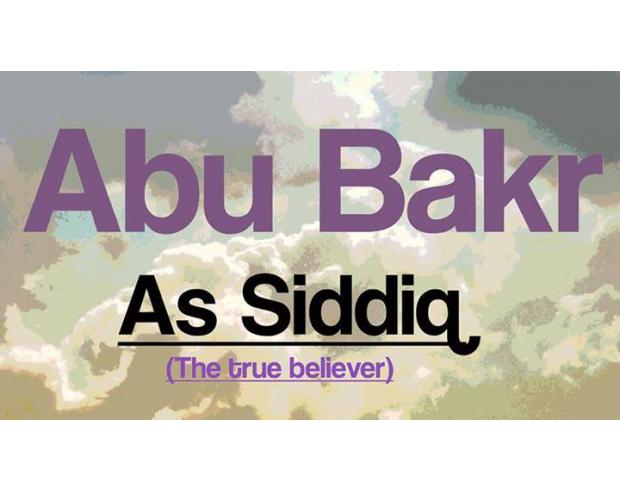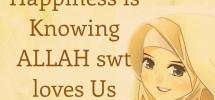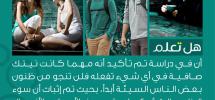How can a collection of stories about the righteous people begin without first mentioning the most righteous of them all: the Prophet Muhammad (Sall Allahu Alaihi Wassallam, SAW)? The Hijrah After 13 years of preaching the message of Allah (SWT) in Makkah, the Prophet Muhammad (SAW) and his devoted companions had suffered many hardships at the hands of the people of their tribe, Quraysh. It had become difficult enough for those Muslims who had tribal protection to continue living in Makkah; for those who had no such official protection, life had become unbearable. It was then that Allah made the hearts of the people of Yathrib (now Medina) receptive to Islam and after the second Pledge of Aqabah, where 12 of their men pledged allegiance to Islam, the city became a possible candidate for the migration of the persecuted Muslims of Makkah. The Prophet (SAW) now encouraged his followers to start migrating to Yathrib and many of his followers managed to escape from their oppressors in Makkah. Before long, all of the closest companions of the Prophet (SAW) had left Makkah except Abu Bakr Siddiq (Radi Allahu Anhu, RA) and Ali bin Abi Talib (RA). Abu Bakr (RA) had asked the Prophet’s (SAW) permission to emigrate, but he (SAW) had said, “Hasten not away, for it may be that Allah will give you a companion.” So Abu Bakr (RA) understood that he must wait for the Prophet (SAW) and he made preparations for the journey by readying two camels. One afternoon, the angel Jibreel (Gabriel) came to the Prophet (SAW) to tell him that Allah (SWT) had now sent the order for the Prophet to emigrate. It was noon, and it was an unusual time for the Prophet (SAW) to visit Abu Bakr (RA) so when Abu Bakr (RA) saw the Prophet (SAW) coming at that hour he knew that something important had happened. A’ishah (RA) and her sister, Asma (RA), were with their father, Abu Bakr (RA), at that time. The Prophet (SAW) came in and said to Abu Bakr (RA), “Allah has allowed me to leave the city and to emigrate.” “Together with me?”Abu Bakr (RA) asked. “Together with you.” the Prophet (SAW) replied. A’ishah (RA) was seven years old at that time and she used to say in later years that, “I knew not before that day that one could weep for joy until I saw my father, Abu Bakr (RA), weep at those words.” The Prophet (SAW) returned to his home and told Ali (RA) about the migration. He (SAW) entrusted to Ali (RA) the responsibility of staying behind in Makkah after the Prophet’s (SAW) migration and return to the owners all of the goods that had been deposited in his (SAW) house for safekeeping (the Prophet (SAW) was known as “Al Sadiq – the Truthful and Al Amin – the Trustworthy and people often entrusted their property to him for safekeeping because of these qualities). Quraysh had made an elaborate plan to murder the Prophet (SAW) that very night and as night fell, the people that had been chosen for that task assembled outside the Prophet’s (SAW) house. The Prophet (SAW) and Ali (RA) were soon aware of their presence. The Prophet (SAW) took his cloak and gave it to Ali (RA) to cover himself with as he lay down in the Prophet’s (SAW) bed. Then he (SAW) began to recite Surah Ya Seen (Surah 36) and when he (SAW) reached the ayah “…And We have covered them up so that they cannot see…” (Quran 36:9) he (SAW) left his house and went through the very path that the men were guarding, but they did not see him (SAW). By the time the conspirators were aware that the Prophet (SAW) had managed to leave the house without being seen, it was already near dawn. They rushed to their respective leaders to inform them about what had happened. The Prophet (SAW) meantime had gone to meet Abu Bakr (RA) who was waiting with his two camels, saddled and ready for them. Losing no time, they mounted the camels and made for a cave in the Mount of Thawr – this was in the southern direction, towards Yemen – this direction was deliberately chosen because they knew that as soon as the Prophet’s (SAW) absence was discovered, Quraysh would send search parties out to cover all the northern outskirts of Makkah in the direction of Yathrib. When they had gone a little way beyond the precints of Makkah, the Prophet (SAW) halted his camel, and looking back at the place where he had been born, raised, married and lived for 53 years of his life, where his children were born, where his family lived, he said: “Of all Allah’s earth, you are the dearest place to me and the dearest to Allah, and had not my people driven me out from you, I would not have left you.” The Prophet (SAW) and his closest friend, Abu Bakr (RA), made their way towards the Cave of Thawr, not knowing what lay in store for them in the next few hours. They had been driven out of their homes as a result of the oppression and persecution of the Quraysh and it seemed as though it was the latter who had the upper hand. Abu Bakr (RA) entered the cave first to make sure there was no beast inside – this he did to ensure the safety of the Messenger of Allah (SAW). Amir ibn Fuhayrah (RA), a shepherd whom Abu Bakr (RA) had bought as a slave and then set free and put in charge of his sheep, had followed behind them with his flock to cover up their tracks. Abdulllah (RA), the son of Abu Bakr (RA) also accompanied them and when they reached the cave, he was sent home with the camels with instructions to find out what was being said and done in Makkah and then to bring them news the following night. Amir bin Fuhayrah (RA) was to pasture his sheep as usual with the other shepherds during the day and was instructed to bring them to the cave at night, always covering up the tracks of Abdullah (RA) between Thawr and Makkah. When Abdullah (RA) returned to the cave the following night, he brought his sister, Asma bint Abu Bakr (RA), with him as well. She had brought food for the Prophet (SAW) and her father. The news was that Quraysh had offered a reward of a hundred camels to anyone who could find the Prophet (SAW) and bring him back to Makkah. This was a considerable amount of wealth in those days. Moreover, they had dispatched horsemen on every normal route from Makkah to Yathrib in search of the Prophet (SAW) and Abu Bakr (RA) whom they knew to be with him (SAW). But there were some people, whom Abdullah (RA) was not aware of, who thought that the Prophet (SAW) would be hiding in the numerous caves in the hills around Makkah. The Arabs of those days were exceptionally good trackers: even when a flock of sheep had followed in the wake of 2 or 3 camels, the average Bedouin would know the larger tracks at a glance even though they had been largely obliterated. In fact, one such group was indeed looking for them in the southern hills. Two days passed without incident. On the third day, the Prophet (SAW) and Abu Bakr (RA) heard the sound of birds just outside the cave. Some time later they heard the faint sound of men’s voices, at some distance below them but gradually growing louder as they came closer to the cave. Soon the men from among the polytheists of Makkah were at the cave and could easily have seen the Prophet (SAW) and Abu Bakr (RA) from where they stood. The Prophet (SAW) said to Abu Bakr (RA): “Be not afraid, surely Allah is with us.” It was not for his own life or safety that Abu Bakr (RA) was concerned – his entire life up to that point in time had proved that it was the safety of the Messenger of Allah (SAW) that was important to him; his worry was out of concern for the Message and the Messenger! Abu Bakr (RA) later reported: “While I was in the cave, I said to the Prophet (SAW), ‘If one of them were to look underneath his feet (the cave lay below where the Makkans stood), he would see us.’ The Prophet (SAW) said, ‘What do you think, O Abu Bakr, about two, when Allah is their third?’” The Prophet (SAW) had taken every measure to ensure that every part of their journey was carefully planned. A believer makes his best effort for the sake of Allah and then relies on Allah (SWT) for the fruit of his efforts. This is the sunnah (tradition) of the Prophet of Allah (SAW). The polytheists however looked at the cave and saw upon its opening a spider’s web and near the entrance was the nest of a bird in which there were eggs. Looking at the spider’s web that looked untouched and the bird’s nest and eggs which lay undisturbed (they would have been sure to have been trampled upon where they were if someone had entered the cave), the polytheist Makkans concluded that nobody could have entered the cave in the past few days and left. SubhanAllah! Allah (SWT) says about this in the Quran: “If you help him (Muhammad SAW) not (it does not matter), for Allah did indeed help him when the disbelievers drove him out, the second of the two; when they (Muhammad [SAW] and Abu Bakr [RA]) were in the cave, he (SAW) said to his companion (Abu Bakr [RA]): “Do not be sad (or afraid), surely, Allah is with us.” Then Allah sent down His sakinah (calmness, tranquillity) upon him, and strengthened him with forces which you saw not, and made the word of those who disbelieved the lowermost, while the Word of Allah became the uppermost; and Allah is All Mighty, All Wise.” (Quran Surah 9, ayah 40) Allah’s ‘soldiers’ work against falsehood and for the Truth; the spider and the bird were Allah’s soldiers just like the small birds that destroyed Abraha’s army as it advanced upon the Ka’abah in Makkah more than 53 years before! Allah says in the Quran (Surah 74, Ayah 31): “And none can know the hosts (armies, troops, soldiers) of your Lord but He.” Thus Allah showed the polytheists of Makkah that it was not them who had the upper hand. Despite their best efforts they were unable to execute their own plan to perfection. On the third day, the Prophet (SAW) and his companion, Abu Bakr (RA) proceeded towards Medina with a skilled guide. It is a very difficult time in a man’s life when he is persecuted for his beliefs and forced out of his home. But Allah’s promise to the believers is true: Allah says in Surah Sharh, Surah 94, Ayahs 5-6: “So, verily, with every difficulty, there is relief; Verily with every difficulty there is relief.” Who would have known that very soon Allah would give victory to the believers over the disbelievers of Makkah and that within 10 years Islam would have spread to all parts of Arabia! Questions: 1. When a believer relies on Allah’s help, does he also make his best efforts for the task at hand? State whether you agree or disagree and then explain your understanding of this concept using three examples from the story to support your argument. 2. Describe two qualities of Abu Bakr (RA) you saw in this story that impressed you. 3. What did you learn about Allah from this narrative? Explain using two examples from the story.
2014-04-18 16:24:18
How can
sign in to comment
Be the first to comment





